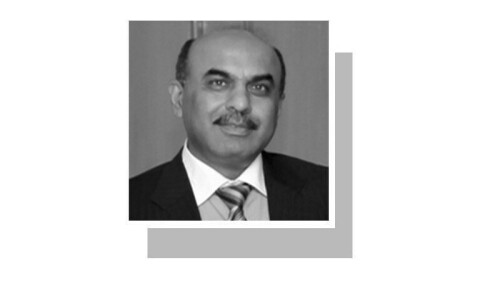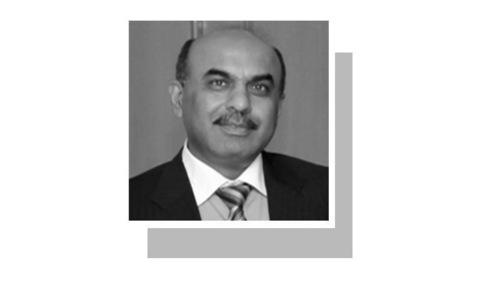LAHORE: Leading economists have expressed grave concerns over the deteriorating economy, which, according to them, is in a free fall situation.
In a webinar titled “Budget 2022-23: Is the economy in free fall?” organised by the Institute for Policy Reforms (IPR), they sought immediate and effective short-, medium-, and long-term measures under political will in a bid to control the economic chaos and take the country out of crisis.
“During the last many years, the country’s budget deficit has immensely increased, leading to borrowings from the international funding institutions to pay the loans, subsidies and clear other liabilities,” said former commerce minister and the chairman of IPR, Humayun Akhtar Khan.
He said 38 per cent of the country’s total federal revenue goes for the payment of loans and interest, and 19.2pc for subsidies (electricity, fuel, etc). The rest is consumed by the other sectors, including the Public Sector Development Programme (PSDP), defence and other sectors.
According to him, the Paris Club’s lending share included 25.1pc, 17.9pc and 8.8pc of the country’s GDP in 2010, 2015 and 2021, respectively, followed by Multilateral as 42.7pc, 37.3pc and 27.6pc of the GDP respectively in the aforementioned years. He stated that the total external debt of the GDP remained at 31.8pc, 24.2pc, and 40.6pc in 2010, 2015, and 2021, respectively.
Speaking on the occasion, Dr Hafeez Pasha, former minister for finance, said the country’s fiscal budget deficit continue rising fast making every person as indebted of Rs200,000 to date from about Rs50,000 to 60,000 some years ago. “As the title of this event “Is Pakistan’s Economy in a Free Fall”, I will say yes it is,” said Dr Pasha. He noted that the mushroom growth of subsidies has left no space for development in the upcoming budget. “Imagine that the federal PSDP comprises over 1,000 development projects worth Rs8 trillion but the allocation was just Rs500bn,” he added.
Giving his input on the occasion, Mr Khan termed the country’s worsening economic situation as a result of the non-availability of a right person for the right job. While comparing the country’s neighbouring countries, he wondered about India’s $600billion foreign reserves, 6-8pc GDP growth and over $600bn exports, followed by Bangladesh, which has over $45bn foreign exchange reserves, 6pc GDP growth, and $40bn exports. “But unfortunately, we are far behind in these countries since the culture, weather, and people are almost the same. Our exports couldn’t even cross $30bn and our foreign reserves are still less than $10bn. The slow GDP growth is another issue,” he explained.
He said the situation worsened fast during the last five years, as there was no foreign investment in the country. From 2013 to 2018, only Chinese companies made investments in Pakistan. “However, during the last five years, there was no foreign investment. Due to the fear of accountability-related organisations, even local investors did not invest in any sectors other than real estate,” he added.
He urged the government to reduce the import bill by producing several items like commodities, etc. locally instead of importing them. “Moreover, please let the people bring them back, restore their confidence, keep them away from unnecessary accountability and investigations, and assure them of protecting their money,” he sought.
The Head of Policy, Debt Justice, UK, Mr Tim Jones, warned the government of a very worrisome situation, keeping in view the country’s rising external debt.
Published in Dawn, May 28th, 2022













































